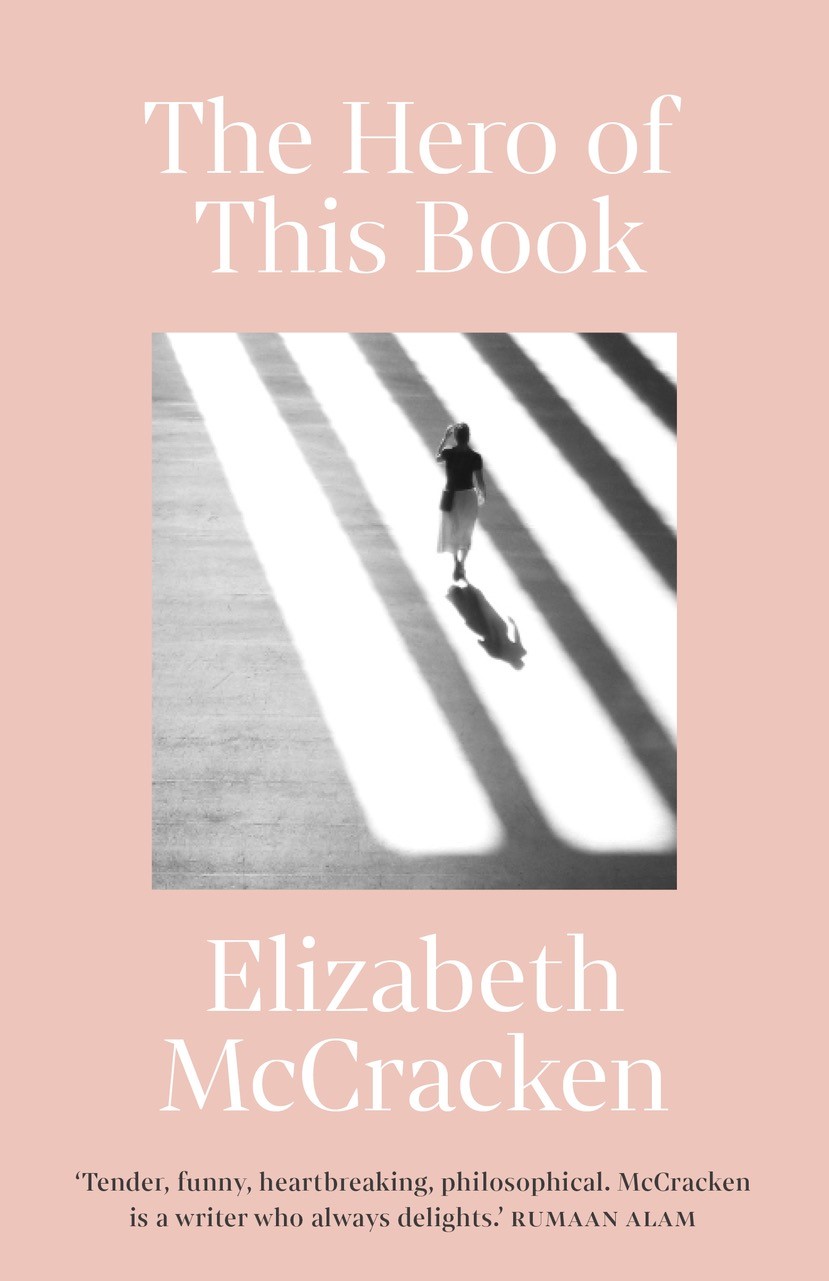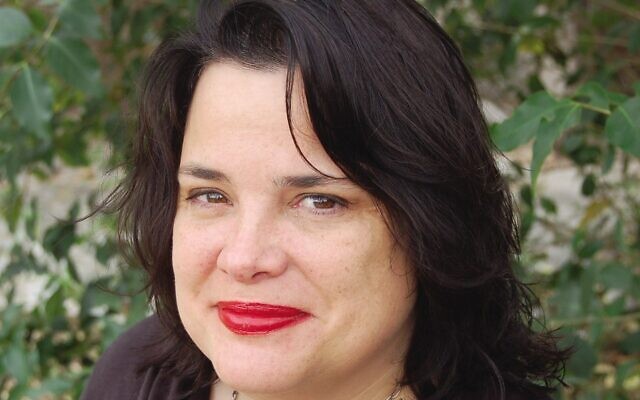Wingate prizewinner’s mother didn’t want to be featured in her daughter’s books
Elizabeth McCracken found a way to write about her mum while adhering to her wishes
Francine Wolfisz is the Features Editor for Jewish News.
There are two things Elizabeth McCracken’s mother would have hated if she were still alive – that her author daughter fictionalise her as a character in one of her novels, or that she be included in any memoirs.
But a year after Natalie Jacobson McCracken passed away aged 73 in 2018, the writer found herself itching to pick up a pen and ensure her mother – who “had more joie de vivre than anybody I know” didn’t simply “evanesce”.
McCracken set about finding an ingenious solution: she wrote a novel, not a memoir, starring her mother as herself, not a fictitious character. The resulting firecracker of a story, The Hero of This Book, is told with wry observation, empathy and an abundance of love for her eccentric Jewish mother. The novel has also just been unveiled as this year’s winner of the prestigious Wingate Prize for Literature.
Speaking from her home in Texas, McCracken is keen to tell me more about Natalie, a woman who “really loved being like nobody else.”
Boston-born McCracken, 57, who teaches fiction at the University of Texas at Austin, smiles as she recalls the best qualities about her mother. “One of the things it says in the book, and it is very true, was that she liked anything that made her a statistical anomaly. She was a Jewish girl from small-town Iowa, she was a twin, she had cerebral palsy and lived with it for many years, which for my mother’s age bracket is quite unusual. She had her PhD in theatre and was very proud of that and adored being an eccentric. She was also stubborn and optimistic and cheerful, and just an enormous amount of fun.”
In essence, her mother was someone who “really loved being alive”, embracing life and overcoming the physical disability she endured, including having to use walking aids.
Diminutive in stature, Natalie stood in stark contrast to McCracken’s late father, Samuel, a well-regarded professor at Boston University, who was a towering 6ft 3ins. In the years before he died in 2013, he was a hefty 25 stone and grew a long white beard, prompting McCracken to liken her father to a “Santa” figure in her book.
“He and my mother were very funny next to each other,” smiles McCracken. “They were true opposites in most ways. Their wedding photos are hilarious. They were married by a rabbi at the historic Hotel Fort Des Moines in 1959, and it was hard for the photographer to take pictures where both of their heads were in the frame.”
Samuel, who was shy and had a stutter, “never finished his PhD and never wrote his dissertation,” but he had an encyclopaedic memory that many envied him for. One colleague described him as “Google before Google.”
 When the author thinks back on their marriage, she sees it as one that was full of nothing but happiness. “I think one of the defining facts of my life is that I had a very small mother and a very large father, and I just think of their physicality next to each other. But they were very well-suited to each other and never tired of talking.”
When the author thinks back on their marriage, she sees it as one that was full of nothing but happiness. “I think one of the defining facts of my life is that I had a very small mother and a very large father, and I just think of their physicality next to each other. But they were very well-suited to each other and never tired of talking.”
Natalie was raised Jewish, Samuel as a Presbyterian, while McCracken was brought up with a “secular, humanist philosophy”. In her book, she admits that her mother passed little of her Jewish knowledge onto her, but nevertheless Judaism remained important to her family and especially her grandmother, with whom she went to Temple whenever they visited. She tells me as an aside that Natalie was “very, very proud” that her great-grandfather was the first Orthodox Jewish rabbi in Des Moines.
McCracken recalls with fondness and humour what happened at her own wedding to English author and playwright Edward Carey, which took place in an Anglican Church. “My mother was quite insistent that we were married by a rabbi,” she laughs. “It surprised me only because she was really laid back about everything and was like, whatever you want is what I want. In the event, the Anglican priest was all for it, but getting a rabbi in England to do it was quite a complicated thing. We found one in the end.”
McCracken has previously explored the Jewish side of her family in her 2001 work, Niagara Falls All Over Again, and is no stranger to writing about personal subjects. In 2008, the mother-of-two penned An Exact Replica of a Figment of My Imagination, a poignant memoir of her third pregnancy, which went full-term and tragically ended in a stillbirth.
And yet, for The Hero of This Book, she experienced inner turmoil and questioned whether it was an act of love or betrayal to pour the life of her mother, an intensely private woman, onto the pages of her latest work. She came to the conclusion that this “novel, not a memoir”, which features a fictionalised mini-version of McCracken as narrator and meanders between London, Texas and Iowa, was ultimately an act of love.
“One of the reasons I wrote the book was to keep my mother closer to me,” she says. “As I was writing, it seemed like such a big deal, wondering about family members who would be upset with me, as well as what my mother would have wanted. But I concluded my mother would just love a book about herself, because she really did – not in a self-important way – love being the centre of attention. She really loved it. She liked to make toasts. She liked to perform.
“There are some things in the book that she would not be happy about, such as how my parents were hoarders and the state of their house. But there are other things I didn’t put in and I tried, especially because my mother had a disability, not to invade her bodily privacy in any way. I was also careful not to imagine what she felt or thought. That seemed very important.”
I ask McCracken what Natalie might say to not just being the centre of a book, but one which is now also a prestigious award-winning novel. “I would say she would have made plans to deliver the acceptance speech,” the author laughs. “But mostly, I like to think my mother would feel that I had done a good job.”
The Hero of This Book by Elizabeth McCracken is published by Penguin, priced £9.99 (paperback).

Thank you for helping to make Jewish News the leading source of news and opinion for the UK Jewish community. Today we're asking for your invaluable help to continue putting our community first in everything we do.
For as little as £5 a month you can help sustain the vital work we do in celebrating and standing up for Jewish life in Britain.
Jewish News holds our community together and keeps us connected. Like a synagogue, it’s where people turn to feel part of something bigger. It also proudly shows the rest of Britain the vibrancy and rich culture of modern Jewish life.
You can make a quick and easy one-off or monthly contribution of £5, £10, £20 or any other sum you’re comfortable with.
100% of your donation will help us continue celebrating our community, in all its dynamic diversity...
Engaging
Being a community platform means so much more than producing a newspaper and website. One of our proudest roles is media partnering with our invaluable charities to amplify the outstanding work they do to help us all.
Celebrating
There’s no shortage of oys in the world but Jewish News takes every opportunity to celebrate the joys too, through projects like Night of Heroes, 40 Under 40 and other compelling countdowns that make the community kvell with pride.
Pioneering
In the first collaboration between media outlets from different faiths, Jewish News worked with British Muslim TV and Church Times to produce a list of young activists leading the way on interfaith understanding.
Campaigning
Royal Mail issued a stamp honouring Holocaust hero Sir Nicholas Winton after a Jewish News campaign attracted more than 100,000 backers. Jewish Newsalso produces special editions of the paper highlighting pressing issues including mental health and Holocaust remembrance.
Easy access
In an age when news is readily accessible, Jewish News provides high-quality content free online and offline, removing any financial barriers to connecting people.
Voice of our community to wider society
The Jewish News team regularly appears on TV, radio and on the pages of the national press to comment on stories about the Jewish community. Easy access to the paper on the streets of London also means Jewish News provides an invaluable window into the community for the country at large.
We hope you agree all this is worth preserving.






















